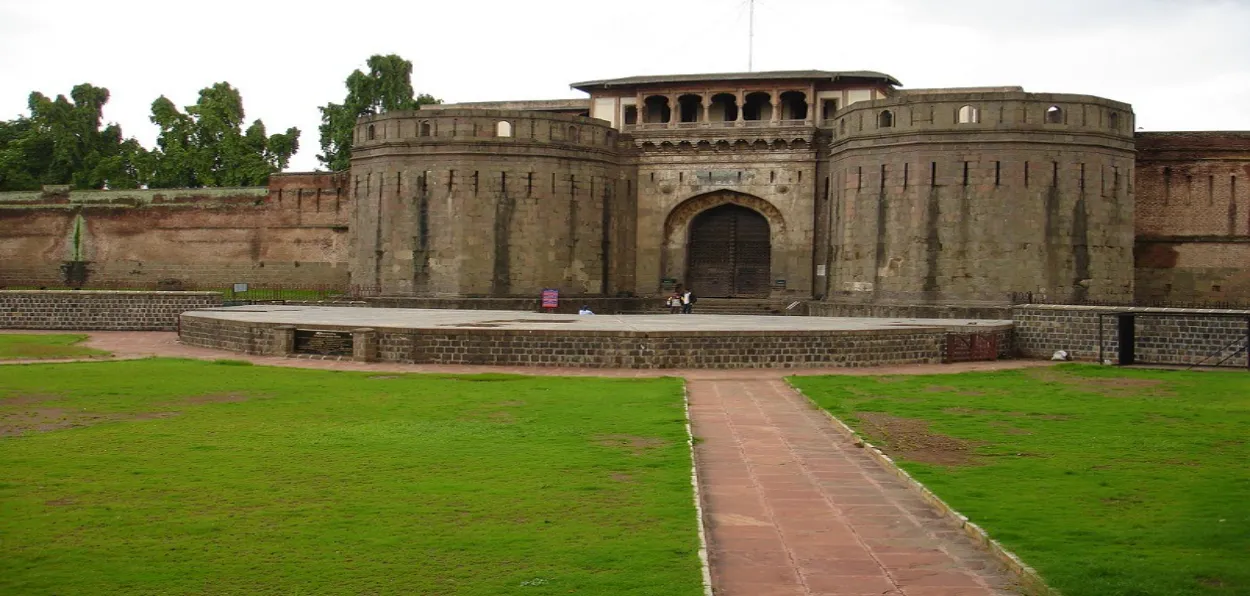
Pune
A video of three women offering Namaz in the premises of Shaniwar Wada, a historic monument in Pune, Maharashtra, recently went viral on social media. This 18th-century palace-fort was the seat of the Peshwas, the prime ministers of the Maratha Empire. Following the video’s virality, Pune's Rajya Sabha MP from the Bharatiya Janata Party (BJP), Medha Kulkarni, and some Hindu organisations held a protest on the premises against namaz.
Officials from the Archaeological Survey of India (ASI) filed a police complaint against three women for offering prayers in the protected historical monument. Police have registered a case against three unidentified women.
MP Medha Kulkarni and her followers 'purified' the spot where the Namaz was offered by sprinkling gomutra (cow urine) and plastering it with cow dung. However, this act by the MP triggered a backlash from social and political activists.
Rupali Thombre-Patil of the Nationalist Congress Party (NCP-Ajit Pawar), which is a ruling coalition partner with the BJP in the Maharashtra state government, said, "People of all castes and religions visit Shaniwar Wada. Some mothers and sisters wearing burqas sat there on a sheet. Later, they sat and prayed, asking for blessings. This does not destroy the sanctity of Shaniwar Wada."
"The MP should act according to the Constitution," she added. "You are an MP for people of all religions and castes. Do not spoil the atmosphere of social harmony in Pune, because Hindus and Muslims live peacefully here."
.jpg)
MP Medha Kulkarni speaking to media on her purification ritual
Dr. Farah Anwar of the 'Miss Farah Charitable Foundation' looks at the incident from two perspectives. She said, "Religious rituals should not be performed at public, historical, or tourist places. However, it is essential to get to know why those women offered Namaz there.”
She explained, "If the doors of the city's mosques were respectfully open to Muslim women, they would not have felt the need to offer Namaz in the premises of a historical monument like Shaniwar Wada. Many mosques in the city do not have entry, facilities, or safe spaces for women to pray. This systemic problem is the real reason for today's unnecessary controversy."
Dr. Farah has been fighting a battle for women to get entry into mosques. During nearly ten years of her campaigning, she has written to the administrations of the many major mosques in India, demanding entry and facilities for women to offer prayers. She has also knocked on the doors of the Supreme Court regarding this, and the hearing on it is still pending.
On this issue, Maulana Mohammed Taufiq Ashrafi, the Khateeb and Imam of Gulshan-e-Gareeb Nawaz Mosque, presented the Islamic perspective. He said, "According to Shariat, women should offer Namaz at home. You will never see women offering Namaz in an Eidgah on the day of Eid. This is because women have been given this special exemption to pray at home."
Videograb of women offering Namaz
He continued, "Pune's Shaniwar Wada is a historical site, a public space. It is being said that some Muslim women offered Namaz there. From Islam's perspective, this was an unnecessary act. It is a public place where people are constantly coming and going. Islam has forbidden women from offering Namaz in such places."
"We respect every religion," Maulana Ashrafi clarified. "Therefore, if this (Namaz in public) is not acceptable, we must strictly avoid it. Our Islam never promotes or permits anything that could hurt someone's sentiments. Therefore, for the Muslim women who offered Namaz there, we, in a way, apologise."
Advising Muslim men as well, Maulana Ashrafi requested, "In today's atmosphere, men should also avoid offering Namaz in public places. If someone dislikes it and it has the potential to escalate conflict or lead to action, it is wise to avoid it.
Shaniwar Wada stands as a witness to the valour of the Maratha Empire, the glory of the Peshwas, and an extraordinary love story. Built in 1732 by Peshwa Bajirao I, this grand residence was once the centre of Maratha power. It was from this Wada that Bajirao expanded the Maratha Empire, famously planting its flags "beyond Attock" (in modern-day Pakistan).
Shaniwar Wada, however, is not only associated with political history. It is also immortalised by the love story of Bajirao and his second wife, Mastani, which was turned into a film, Bajirao Mastani, featuring Deepika Padukone and Ranbeer Singh.
Mastani, the daughter of Maharaja Chhatrasal of Bundelkhand, is understood to have been a Muslim. Bajirao married Mastani and fully respected her Muslim faith and practices. A separate arrangement was made for her within the Shaniwar Wada premises, where she could follow her religious rituals. In that era of political instability, this tolerance shown by Bajirao was particularly significant.
The love story of Bajirao and Mastani is not confined to the pages of history. Their descendants, the family of Nawab Ali Bahadur, exist even today and they visit this monument from time to time. This family is a living symbol of that historical Hindu-Muslim unity. It is a living example of religious harmony and mutual respect even in times of political conflict.
ALSO READ: Kashmiri 'Delicious' apple harvest in progress, only 10 pc crop lost
The 2015 blockbuster Bajirao Mastani vastly increased public curiosity about Shaniwar Wada and these historical figures. The film brought the complexities of their love story and the social and religious aspects of that era to the big screen, making the general public eager to learn more about the monument and its history. Even today, many tourists come here not just to see the grandeur of Shaniwar Wada, but also to find the traces of the Bajirao-Mastani love story hidden within its walls.
